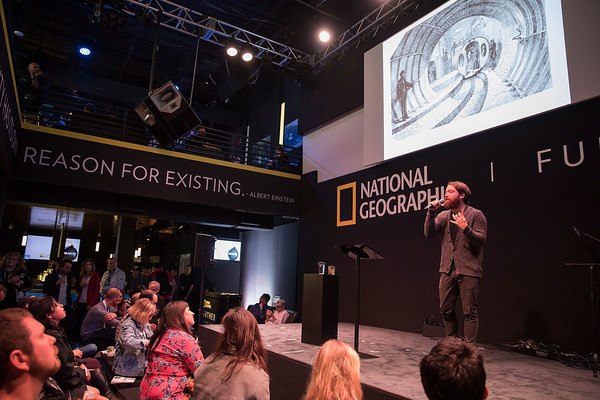
The television industry has never been short of events, whether in the form of the annual Upfronts where prospective pilots are paraded for the US networks, or international sales-driven events such as the bi-annual MIP markets.
Few who attend such gatherings will have failed to notice that the nature of the business done at such seasoned shows has changed over time. MIP is now often a place to promote and announce deals done prior to the market, and broadcasters are increasingly holding their own bespoke events ensuring that distributor’s attention is squarely focused on them.
So where are the forward-thinking executives heading to do business these days? One surprising answer is Austin, Texas, for South by South West (or SXSW) which began in 1987 as a music festival. The mid-90s saw the festival expand its remit to include film and multimedia, but it wasn’t until 2014 that television was formally added to the line-up, under the umbrella of “episodics”.
Yet despite coming late to TV as a medium in its own right, this year’s SXSW was heavily attended by the industry. It was striking how many delegates with a conventional TV background attended the 2017 festival in mid-March. Norway’s public service broadcaster NRK alone fielded over 20 delegates with a similar number coming from the BBC and BBC Worldwide.
What’s the appeal? The answer can be found in SXSW’s original mission statement to celebrate the convergence of the interactive, film, and music industries. That concept of convergence is now of pressing relevance to television, and while other industry events have offered panels and seminars on social media, virtual reality and other emerging platforms, it has always been done from the perspective of inside the TV business looking out. At SXSW, all perspectives are incorporated.
Last year one of the main topics of conversation at SXSW was how to reach young audiences via Snapchat. This year, debate circled around VR, robotics, artificial intelligence, live streaming and fake news. What was evident is how different parts of the entertainment industry are learning from each other and collaborating more than ever. Linear TV is reminding itself what it can do better than streaming platforms or social apps while the upstarts are, in turn, learning from TV.
For example, in a fascinating panel about the future of cable TV, the impressive Donna D’Alessandro, VP of Programming at Discovery, emphasised the importance of creating a TV event. The famous Shark Week had been in decline but Discovery invested in social and made it a viral event. It now “lives on its own” and, crucially, brings in a different audience annually from the normal Discovery viewer. As a competitor on her panel asked, “How many people have sat in meetings and said ‘What’s our Shark Week?’”
Everyone knows that the digital platforms are better than linear TV at analytics and understanding their audiences. Mashable for example, knows that women 18-25 who like luxury cars also like horror. Some entertainment companies don’t even rely on traditional overnights but other benchmarks, such as MTV’s desire to keep their brand “alive in the conversation” or WWE’s mantra that “it’s not about ratings any more, it’s hours”. Their consumers still watch an average of 4 hours a week, similar to broadcast networks. Red Bull, meanwhile, monitors their audience carefully. For example, they discovered that by sharing the video content of an athlete at the same time each week, they tripled views and engagement.
Linear TV is reminding itself what it can do better than streaming platforms while the upstarts are, in turn, learning from TV
Lots of interesting demographic research, drawn from across the media spectrum, was revealed at the festival. Older viewers, of course, all know that The Bachelor is on ABC and Shark Week is on Discovery, but it turns out that younger audiences are largely indifferent to a network in preference to the show. Rick Eiserman from marketing company Trailer Park argued that this means “attribution matters more than ever”. Viewers need to know that if they like a show originating from HBO or BBC3, they might like to try another one.
Of course, this doesn’t mean that the television industry has no use for dedicated events any more. MIPTV and MIPCOM both provide vital keystones in the calendar. Genre specific events such as Series Mania in Paris and Content London provide much-needed focus. Realscreen’s Summit sets the agenda for the year ahead. But increasingly it is no longer enough for TV executives to consider their output solely in television terms. Even simply being aware of changes and advances in other media will not give the full picture. To truly engage with the 21st century media landscape, it’s essential to experience it first-hand, and meet with the pioneers pushing into its uncharted regions. That’s why March in Austin will continue to become an important date in the TV calendar.
Watch a video of the event from our partners, V, here.
